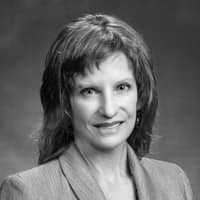NSF-Funded Program Empowers Online Student Researchers

When she was an online undergraduate student, Nazish Chunara, an accomplished Los Angeles-based artist who explores the psychological impacts of uncrewed aerial systems (UAS), or drones, suffered “imposter syndrome” — an unfounded fear that she was merely posing as a bona fide scholar.
That fear vanished after she completed the Research Scholars Program at Embry-Riddle Aeronautical University’s Worldwide Campus. The program is part of an Undergraduate Research for Online Students initiative funded by the National Science Foundation (NSF).
“I wake up now and feel like a researcher,” said Chunara, who is currently pursuing a Master of Science degree in Human Security & Resilience after earning her bachelor’s in Aeronautics at Embry-Riddle. “The last year of my undergraduate studies was incredible. I talked to so many professors who were so kind and willing to discuss academics. That made all the difference for me.”
Growing up, Chunara said she was “a quiet, shy kid.” With her mother and brother, she traveled extensively, living with different relatives in the United States, Pakistan and Dubai following the death of her father. Creative pursuits provided Chunara with a respite from grief. Later in life, on a whim, she took a flying lesson and got hooked on aviation. Lacking the resources to pursue flight lessons, she set her sights on a degree in Aeronautics.
With support from two faculty mentors, Debra Bourdeau and Emily K. Faulconer, Chunara completed a literature review on “Armed and Unarmed Drone Perception in Conflict Zones.” The work, which revealed a knowledge gap in how traumatized people see drones used for military versus humanitarian purposes, was selected for presentation at the National Conference for Undergraduate Research in 2023. Chunara also landed a research assistant position supporting Worldwide’s Virtual Communication Center, where she received crucial encouragement from two other faculty members — Meghan M. Velez and Alex Rister.
Setting Students Up for Success
Faulconer, described by her colleagues as the “firestarter” behind the Research Scholars Program, recognized a need for experiential learning opportunities for online students. Initial investigation showed that Worldwide students often didn’t know “where to start, who to connect with and how to find the time,” Faulconer said.
“Engaging in undergraduate research is a perfect way for online students to gain real-world experience that sets them apart from other graduates in their field while building core transferable skills like critical thinking, collaboration and communication,” said Faulconer, associate professor of Mathematics, Science and Technology in Worldwide’s College of Arts & Sciences. “By working with a research mentor, students can also add a core person to their professional network.”
With faculty members Robert Deters and Brent A. Terwilliger, and supported by Kelly George as a research contributor, Faulconer secured an initial three-year NSF award of nearly $300,000. A second $400,000 NSF grant was approved through 2026, with Deters serving as principal investigator and another collaborator, Darryl Chamberlain, now on board.
“The initiative expanded to include graduate students who will conduct research and provide ‘near-peer’ mentoring to undergraduates,” explained Deters, associate professor of Engineering in Embry-Riddle Worldwide’s College of Aviation. “We have also added an industry advisory board to help guide the program, and students are being offered an incentive in the form of credit through a STEM research minor.”
The big-picture goal is to support students’ academic and future success, said Terwilliger, associate professor and coordinator of Worldwide’s graduate-level Uncrewed and Autonomous Systems program.
“We want to make sure the experience our online students receive rivals or is superior to a residential learning environment whenever possible,” he explained. “What can we do to enhance the overall experience of students, and how can we ensure our programs are producing graduates who are as competitive as can be when they go out to the market?”
Research, Terwilliger noted, “is a skill set that helps a student or practitioner separate themselves from the rest of the pack so they can become leaders in their field.”
The ongoing program supported 34 research mentees, including 30 undergraduates and four graduates, between August 2021 and September 2023. During interview assessments, mentees reported improved self-confidence and enhanced motivation. They also demonstrated “growth in time management, collaboration, communication and information evaluation skills,” according to a project outcomes report.
A key advantage of the program is that — like Chunara, who said she no longer feels like an imposter — “it impacts their identity,” said Chamberlain, assistant professor of Mathematics, Science and Technology. “The students see themselves as scientists. They recognize that they can contribute their knowledge to the world.”
After earning her master’s degree, Chunara hopes to pursue a Ph.D., continue her drone research, become more fluent in Russian, build on her use of poetry as a qualitative research method and conduct research in Tajikistan.

 Ginger Pinholster
Ginger Pinholster